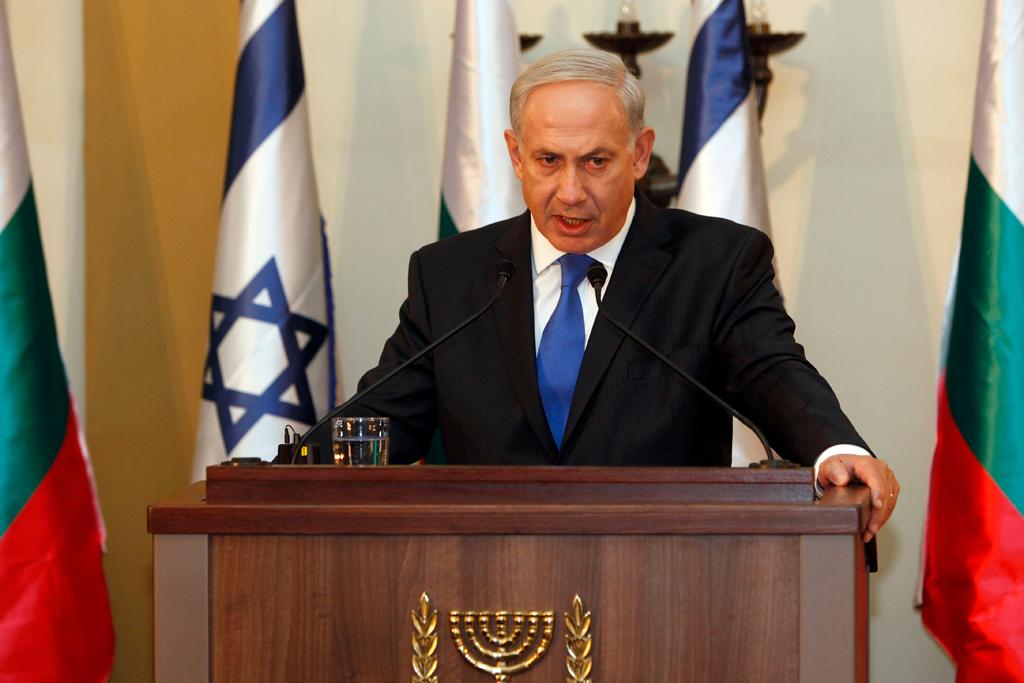Netanyahu: Iran has not crossed red line, but ‘getting closer’
Israeli Prime Minister Benjamin Netanyahu gestures speaks during a joint press conference with his Bulgarian counterpart Boyko Borisov (not seen) in Jerusalem on September 11, 2012.
Israeli Prime Minister Benjamin Netanyahu said Monday that while Iran continues to build its debated nuclear program, it has not reached the "red line" he set last year, though it is "getting closer."
"Iran is continuing with its nuclear program. It has yet to cross the red line I presented at the UN, but it is approaching it systematically," he said at a Likud Beytenu faction meeting. "It must not be allowed to cross it," he added.
More from GlobalPost: Israel not pushing for intervention in Syria, despite chemical weapons
In September last year at the UN General Assembly, Netanyahu drew a now famous red line on a picture of a bomb, illustrating his belief that Iran could obtain enough uranium in mid-2013 that if further enriched could be used for one nuclear bomb.
Iran claims its nuclear program is for peaceful energy and medical use only, while Israeli and western officials suspect Iran of attempting to develop nuclear weapon technology that could in the future be used to fashion a bomb.
More from GlobalPost: Iran nuclear showdown: A primer for mortals
Netanyahu's statement follows former IDF Israeli military intelligence chief Amos Yadlin's claim last week that “for all intents and purposes, Iran has crossed Israel’s red line… In the summer, Iran will be a month or two away from deciding about a bomb.”
Recently in Kazakhstan, Iran and the five permanent members of the UN Security Council and Germany held two rounds of nuclear talks with very little progress.
Netanyahu also spoke about threats from Gaza, saying, "We won't even allow drips (of rockets). We will respond strongly."
The Prime Minister also addressed Israeli concern about the Syrian civil war, which in February the UN said had killed more than 70,000 people. The conflict presented two significant dangers: a weapons leak to Hezbollah and potential attacks on Israeli citizens in the Golan Heights, Netanyahu said.
The story you just read is accessible and free to all because thousands of listeners and readers contribute to our nonprofit newsroom. We go deep to bring you the human-centered international reporting that you know you can trust. To do this work and to do it well, we rely on the support of our listeners. If you appreciated our coverage this year, if there was a story that made you pause or a song that moved you, would you consider making a gift to sustain our work through 2024 and beyond?
